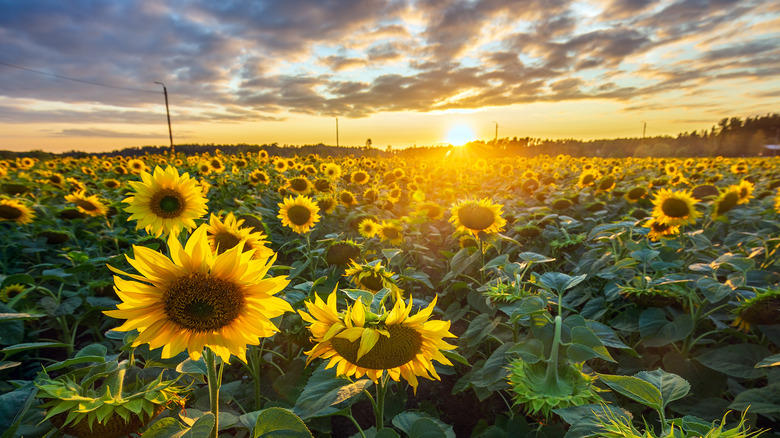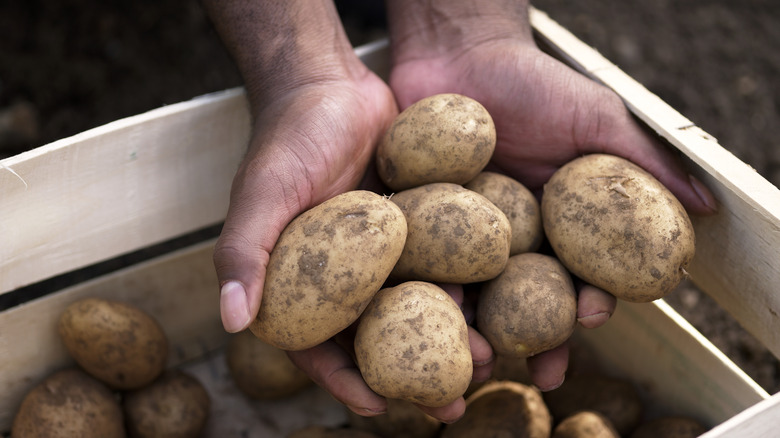Why Ukraine Is Historically Known As The Breadbasket Of Europe
Though every country produces food, some produce a lot more than others. Countries like India, China, Brazil, and the United States have vast amounts of cultivable land both because of their size and because of the luck of geography, while before the addition of the northern island of Hokkaido, most of Japan's best cropland was located in one small area around modern-day Tokyo (called the Kanto region). But while the biggest countries are often the ones that produce the most food, there are a few that punch well above their weight class. Chief among these is Ukraine, often referred to as "The Breadbasket of Europe."
China and India have populations of around 1.4 billion, while the U.S. sits around 340 million and Brazil has about 216 million. You'd expect these to be top food producers. Ukraine, by contrast, has just under 37 million people, yet it sits in the top ten globally for a whole bunch of major crops. So how is that possible? The answer is that Ukraine has a couple of factors that make it wildly rich in agricultural production: Fertile land and even more naturally fertile soil.
Ukraine's size and its soil make it an incredible food producer
The crops Ukraine grows in spades aren't obscure ones. It ranks fifth in the world in corn production, seventh in barley, tenth in wheat, third in potatoes, and leads the world in sunflower oil. It also exports huge amounts of these crops: 41% of the country's total exports in 2021 were food, for around $27.8 billion.
The reasons the country can crank out such high crop yields relative to its population are two-fold. The first concerns the percentage of arable land in the country: A legitimately shocking 55% of Ukraine is arable. Since Ukraine isn't a small country — it's 45th in the world in size, but since there are 195 countries in the world, that still places it in the top 25% — that means there's a lot of farmland to go around.
The second reason, though, is a factor unique to Ukraine itself: The soil is remarkably fertile. Ukraine's black soil has a tremendous capacity for storing moisture. This makes it wildly good at producing crops, generating them in numbers well out of proportion to other countries with less fertile soil.
The war in Ukraine has greatly hampered food production
Sadly, recent events have interrupted Ukraine's status as one of the world's top food producers. The war in Ukraine has damaged some areas, but just as importantly, it's left much more fallow as those who would typically work the country's land have become refugees fleeing to safer places. Russia currently controls more than 25% of the grain-producing land in Ukraine, as well as two of its largest fertilizer plants (crucial for increasing crop yields). Ukraine simply isn't currently able to produce as much food as it has in the past.
This isn't to say the country can't ultimately reclaim its place as an agricultural haven — it will have to in the long run — but for now, it will take time for the industry to recover. This is part of why global supply chains have been affected by inflation since the war began; food simply isn't coming out of Ukraine at nearly the quantities the world (particularly Europe) demands.


